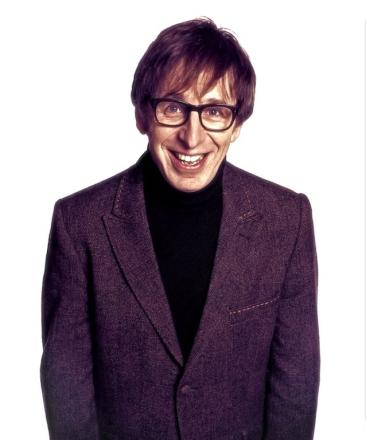

BBC current affairs show Newsnight has taken a brief look at the state of the UK comedy industry during the pandemic.
Reporter Steve Smith went to the Comedy Store in London – observing social distancing rules – and spoke to comedians Ian Stone and Neil Mullarkey (Suzi Ruffell was also there but if she was interviewed she seems to have been cut out of the edit)
"What I do and what comedians do only really works properly in a room full of people where people are packed close together....They have to be close together. It's about shared experience," said Stone, who didn't feel stand-up comedy worked online.
"I think it's really worrying for the businesses that are in the world of comedy. There's a lot of people whose livelihood depends on the Comedy Store and other comedy clubs," said long-time member of the Comedy Store Players Mullarkey.
Also interviewed as part of a wider story on the Covid19 crisis in the arts were actor Rupert Everett, singer Sophie Ellis-Bextor and Kwame Kwei-Armah, Artistic Director of Young Vic.
Watch the section here at 23:34.
On Saturday Radio 5 presenter Nihal Arthanayake also looked at the ongoing crisis in the performing arts. As well as a discussion about theatre and music, after Squeeze's Chris Difford had spoken about how musicians depended on gigging live to make a living, producer/manager Marlene Zwickler also talked about how the comedy industry was being hit particularly badly under the lockdown.
Zwickler echoed Ian Stone's words on Newsnight: "Comedy relies on people being in the room. it's unlike almost anything else. A classical musician can do a recital, a comedian needs that instant feedback. It's quite uniquely affected."
The comedy industry is seriously being hit by the lack of support at the moment. As comedians are usually self-employed it currently looks unlikely that they will receive any further government support apart from the current deal which pays the self-employed a maximum of £7500 for three months as long as they tick various boxes. The only other option will be to claim Universal Credit.
Comedians do not appear to have been able to take full advantage of Arts Council support either. Although the Arts Council has recently said that it will support comedians in this current situation, historical anecdotal evidence suggests that it is extremely hard for stand-ups to receive any funding for the Arts Council.
It does feel as if the comedy industry, by its nature and need for an audience, is suffering more than any other area of the arts – there is a major question mark over when and how gigs will start again. And while it is being hit hardest it is receiving the least support and is in danger of being marginalised when compared to, for example, the music industry or mainstream theatre.
While these stories only skimmed the surface, at least they acknowledged the major damage that is uniquely being inflicted on this very special art form.
Listen to the discussion on Radio 5 from 2:45 here.



